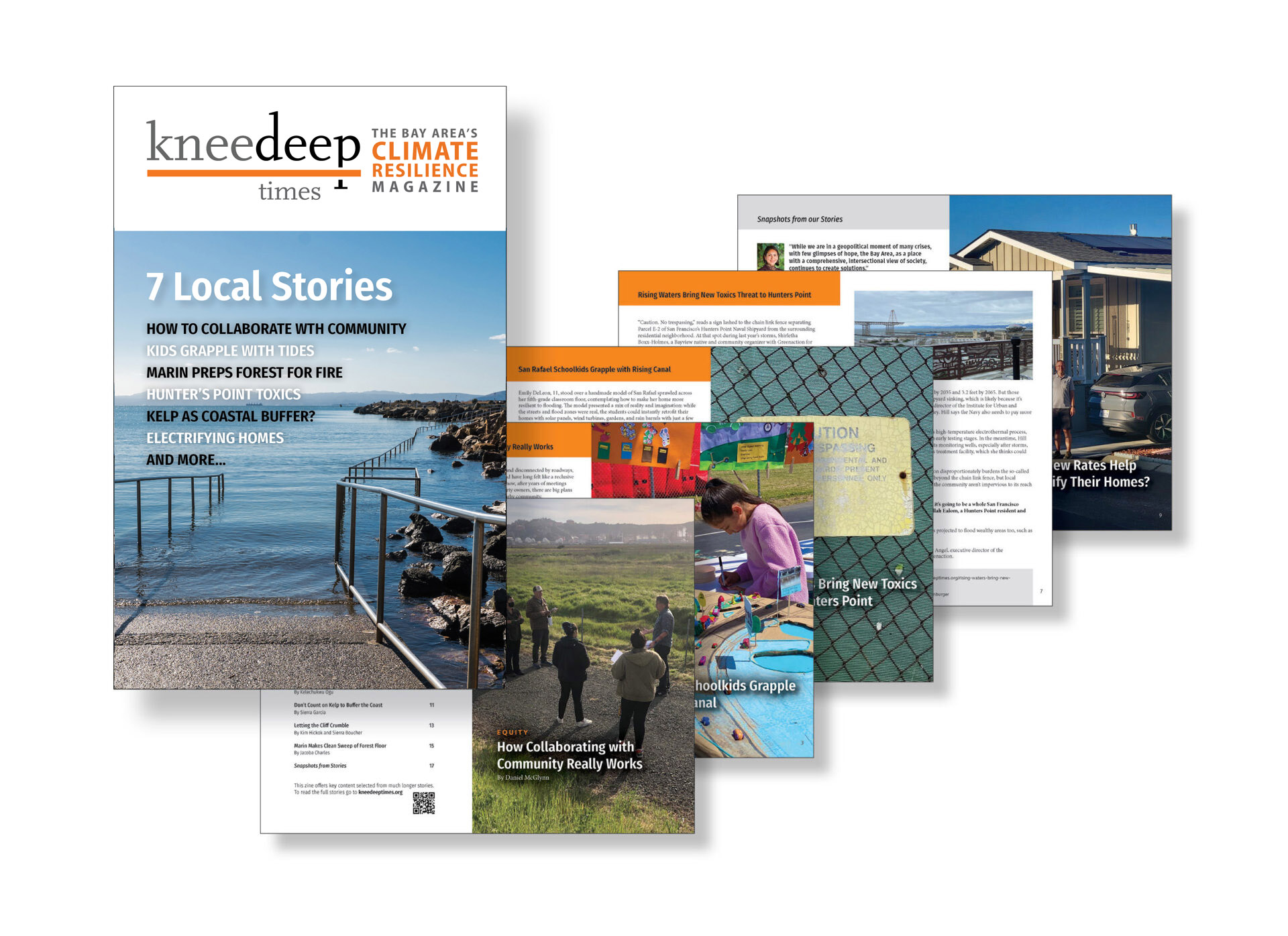Tired of online reading? Tired of scrolling through long stories?
Get your quick-read, tiny zines, four times a year.
Snail mailed to your home or office.
Why are our zine subscriptions so expensive?
Because they double as a critical fundraising tool that is also tax-deductible. What you’re paying for is not only support for local climate journalism, but also the paper, editorial curation and layout, postage, and outreach benefits of having something you can stuff into your staff mailboxes, share at meetings, take to conferences, and more.
All KneeDeep stories remain free, at full length online.
Click here for sample zine.
Your zine subscriptions are tax-deductible through our non-profit fiscal agent Urban Ecology Inc.
Checks may be written to Urban Ecology Inc. and mailed to KneeDeep Zines, Urban Ecology Inc., 582 Market St, Suite 516, San Francisco, CA 94104
Give in other ways!
- Share a story idea.
- Write your own story on the California Climate Quilt.
- Send a Picture of the Month.
- Place zines in your local free library.






